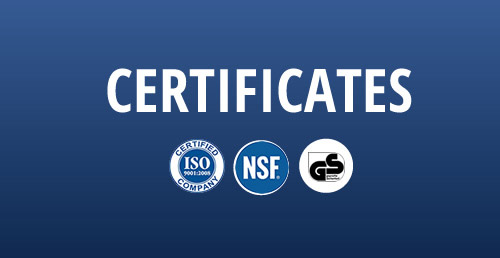Innovative Solutions for Strong and Durable Resin Anchor Studs Installation
Exploring the Benefits and Uses of Resin Anchor Studs
In the world of construction and engineering, securing structures and components is of utmost importance. One of the essential tools that professionals rely on are resin anchor studs. These innovative fastening solutions have gained immense popularity due to their strength, versatility, and ease of installation. To better understand their significance, let’s delve into what resin anchor studs are, their advantages, applications, and the factors to consider when using them.
What are Resin Anchor Studs?
Resin anchor studs are specialized fasteners that are embedded into concrete or masonry substrates using a resin-based adhesive. Unlike traditional mechanical anchors, which rely on friction and expansion to secure themselves in place, resin anchor studs create a chemical bond with the substrate through the curing of the resin. This process ensures a robust and reliable fastening solution that is capable of handling significant loads.
Advantages of Resin Anchor Studs
1. High Load Capacity One of the primary advantages of resin anchor studs is their exceptional load-bearing capabilities. The resin bond can withstand heavy static and dynamic loads, making them ideal for applications where traditional anchors may fail.
2. Corrosion Resistance Resin anchor studs are often designed to be corrosion-resistant, ensuring longevity even in harsh environments. This is particularly beneficial in coastal areas or industrial settings where exposure to chemicals and moisture can lead to degradation of conventional fasteners.
3. Versatile Applications These studs can be used in a variety of applications, including construction, machinery anchoring, and infrastructure projects. Whether it's securing steel beams, machinery bases, or other heavy equipment, resin anchor studs offer a reliable solution.
resin anchor studs

4. Quick Installation The installation process for resin anchor studs is generally straightforward and can be completed quickly. After drilling the appropriate hole, the resin is injected, and the stud is inserted. This efficiency can save valuable time on the job site.
5. Reduced Stress on Substrates Because resin anchor studs do not rely on expansion, they exert less stress on the surrounding material. This characteristic is particularly advantageous in situations where the integrity of the substrate must be preserved.
Applications of Resin Anchor Studs
Resin anchor studs find their use across various industries, including construction, automotive, and aerospace. In construction, they are commonly used for attaching structural elements, such as steel frames and support brackets, to concrete walls and floors. In the automotive industry, these fasteners help secure critical components with precision and reliability. Aerospace applications benefit from the lightweight yet strong nature of resin anchor studs, ensuring aircraft components remain securely fastened during flight.
Considerations for Use
While resin anchor studs offer numerous benefits, there are critical factors to consider when using them. Proper substrate preparation is essential; the surface must be clean and free of debris to ensure optimal adhesion. Additionally, the curing time of the resin must be observed before applying loads to the stud, as premature loading can compromise the strength of the bond. It’s also crucial to select the right type of resin for specific applications, considering factors like the environment and load requirements.
Conclusion
In conclusion, resin anchor studs represent a modern solution to fastening needs in various industries. Their high load capacity, corrosion resistance, and ease of installation make them an appealing choice for professionals. Whether used in construction, automotive, or aerospace applications, these fasteners provide reliable support and security for essential structures and components. As technology continues to advance, the use of resin anchor studs is likely to expand, further solidifying their role in the construction and engineering sectors.
-
Weatherproof Plastic Expansion Anchors for OutdoorNewsJun.06,2025
-
Sustainability in the Supply Chain: Eco-Friendly TEK Screws ProductionNewsJun.06,2025
-
Load-Bearing Capacity of External Insulation FixingsNewsJun.06,2025
-
Double Head Bolts: Enhancing Efficiency in Industrial MachineryNewsJun.06,2025
-
Corrosion Resistance in Chipboard Screws: Coatings for Wholesale DurabilityNewsJun.06,2025
-
Butterfly Toggle Bolts : Enhancing Structural ResilienceNewsJun.06,2025
